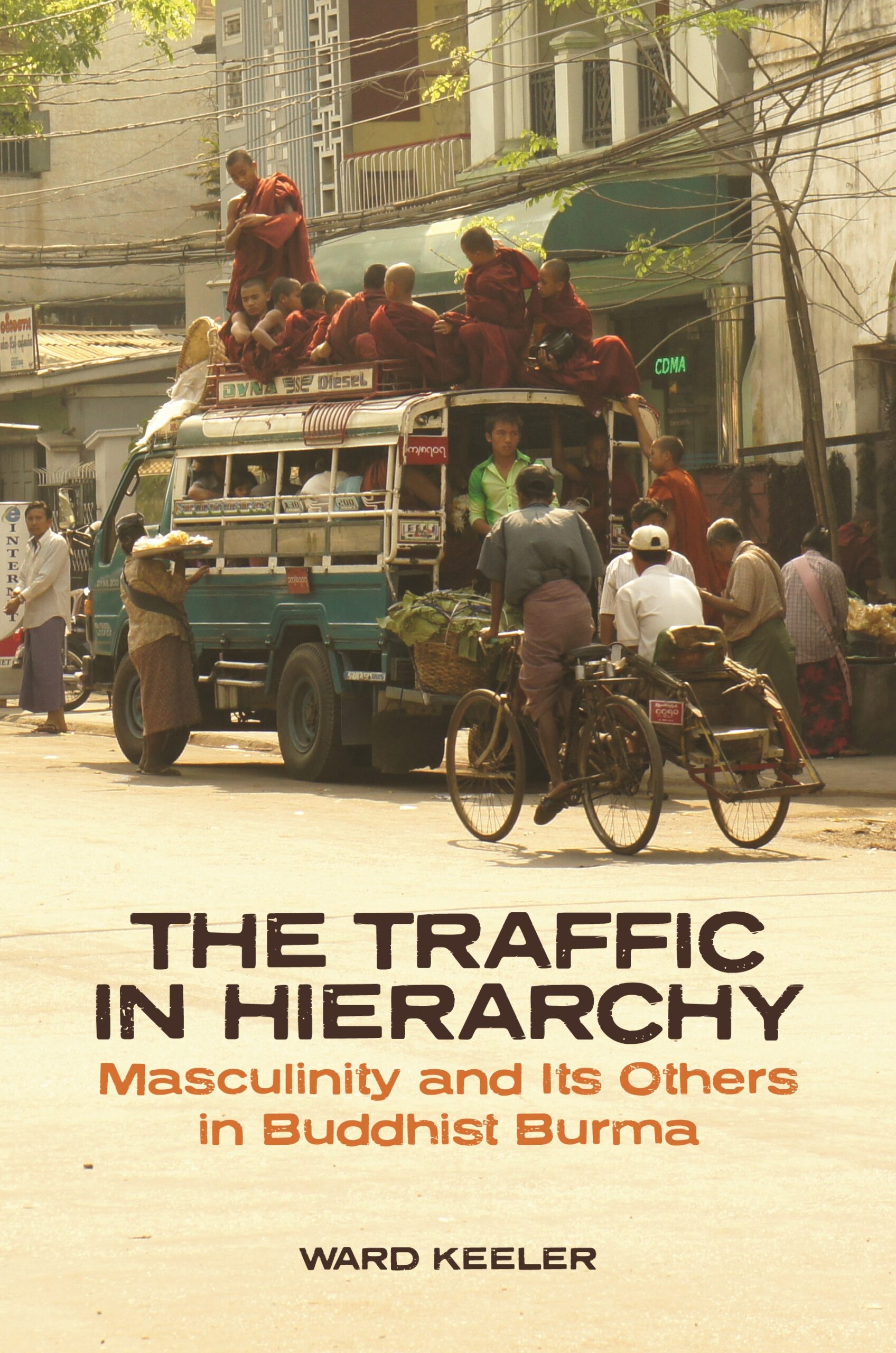The Traffic in Hierarchy: Masculinity and Its Others in Buddhist Burma
- About the Book
-
Until its recent political thaw, Burma was closed to most foreign researchers, and fieldwork-based research was rare. In The Traffic in Hierarchy, one of the few such works to appear in recent years, author Ward Keeler combines close ethnographic attention to life in a Buddhist monastery with a broad analysis of Burman gender ideology. The result is a thought-provoking analysis of Burmese social relations both within and beyond a monastery’s walls.
Keeler shows that the roles individuals choose in Burman society entail inevitable trade-offs in privileges and prestige. A man who becomes a monk gives up some social opportunities but takes on others and gains great respect. Alternatively, a man can become a head of household. Or he can choose to take on a feminine gender identity—to the derision of many but not necessarily his social exclusion. A woman, by contrast, is expected to concern herself with her relations with family and kin. Any interest she might show in becoming a nun arouses ambivalent reactions: although it fulfills Buddhist teachings, it contravenes assumptions about a woman’s proper role.
In Burma, hierarchical understandings condition all relationships, but hierarchy implies relations of exchange, not simply inequality, and everyone takes on subordinate roles in their bonds with some, and superordinate ones with others. Knowing where power lies and how to relate to it appropriately is key. It may mean choosing at times to resist power, but more often it involves exercising care as to whom one wishes to subordinate oneself, in what ways, and on what terms.
Melding reflections on the work of theorists such as Dumont, Anderson, Warner, and Kapferer with close attention to the details of Burman social interaction, Keeler balances theoretical insights and ethnographic observation to produce a rich and challenging read. The conundrum at the heart of this book—whether to opt for autonomy, the Buddhist seeking of detachment, or for attachment, the desire for close bonds with others—is one that all humans, not just Burmans, must confront, and it is one that admits of no final resolution.
- About the Author(s)
-
Ward Keeler, Author
Ward Keeler is associate professor of anthropology at the University of Texas at Austin.
- Reviews and Endorsements
-
- Keeler has written an important–some will find provocative–contribution. In weaving together Buddhism and social hierarchy, Keeler addresses social dynamics that influence all spheres of life, on all layers of society–everyday interactions as much as high-level politics. Besides the theoretical value, Keeler’s book is also entertaining–his vivid ethnography will remind those who have spent time in Burma of some of their own experiences, and readers unfamiliar with the country will get a taste of different aspects of Burma.
—Anthropos - The book’s strengths lie in its clear and elegant structure, the ethnography of Buddhist monasteries in Burma and the relationship between monks as well as between the religious order and lay people, and Keeler’s generous treatment of the work of others, which he integrates whenever he needs to complement either his ethnography or analysis.
—Pacific Affairs - Seasoned with well-aimed appeals to enduring insights in classical social theories, in conversation with contemporary anthropological analyses focused on Myanmar, and grounded in personal encounters with everyday life in Mandalay, Ward Keeler provides an intimate, informative, interdisciplinary, and intellectually provocative study focused on how autonomy and attachment constitute formative ideals for the masculine and feminine within hierarchical Burmese Buddhist society. His approach is thoroughly comparative, peppered with compelling references to relevant moments in other South and Southeast Asian cultures, as well as “the West,” and the book also contains one of the very best discussions I have read on the increasing importance attached to meditation in modern Burma.
— - In this well-written book, Ward Keeler offers many sensitive and engaging descriptions: of Burmese traffic as a means of understanding Burmese society, of Buddhist monks, nuns, and (not un-critically) meditation, of sexualities and genders. Seeing Burmese society as, like all societies, having to deal with the contrary values of autonomy and attachment, he draws skillfully on a number of theorists, especially Louis Dumont on status and hierarchy. Specialists of Burma will find much to reflect on, and non-specialists can enjoy a delightfully lucid account of everyday life in a society closed to the outside world for many years.
— - Keeler’s work constitutes a significant theoretical and methodological contribution to Burmese studies, the comparative ethnography of South and Southeast Asia, studies of sex and gender, and social psychology. Keeler challenges conventional wisdom on several matters; his analytical framework helps illuminate why in Burma ideas and practices of autonomy and subordination can coexist easily, why hierarchy makes far more sense to many Burmese than equality and rights, and how a spectrum of idealization and practice that runs from autonomy to attachment correlates with gender expectations. He ultimately offers readers a vision of “the great chain of Burmese Buddhist being.”
—
- Keeler has written an important–some will find provocative–contribution. In weaving together Buddhism and social hierarchy, Keeler addresses social dynamics that influence all spheres of life, on all layers of society–everyday interactions as much as high-level politics. Besides the theoretical value, Keeler’s book is also entertaining–his vivid ethnography will remind those who have spent time in Burma of some of their own experiences, and readers unfamiliar with the country will get a taste of different aspects of Burma.
- Supporting Resources
-





